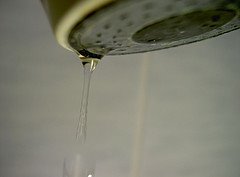BC Leaky and Rotting Condominium Crisis

Re-Sale of Leaky Condos: Did the Buyer Know About?
British Columbia’s Homeowner Protection Office believes there is a total of about 65,000 dwellings in the province that are "leaky condos". As of 2002, 50,000 of them had been identified.
"Leaky condo syndrome" is defined as catastrophic failure of the building envelope allowing water to enter the envelope and leading to rot, rust, decay and mold. The syndrome has affected condominiums, detached homes, schools and hospitals.
Until the collapse of BC’s New Home Warranty Program in 1998, many real estate agents and others believed that the warranty company would repair most building envelope failures. However, only a small percentage of problems were resolved by the warranty provider.
The leaky condo crisis has been exacerbated by the sale of problem homes without full disclosure to subsequent buyers. This has occurred despite the fact that it has been customary for real estate agents to include standard clauses, recommended by the Real Estate Council of BC, in a Contract of Purchase and Sale mandating the use of investigative tools and declarations to bring maximum transparency to transactions.
The impact on people’s lives has been enormous, even horrendous in some cases. Some people have lost much or all of their life savings, even their homes. Family life, home-based businesses and health have suffered due to disruption and the mess during repairs, and the strain of it all.
A real estate researcher and licenced agent, Nancy Bain, conducted a study in 2002 to determine why home buyers of re-sale leaky condos were not aware of problems when they made their purchase. The intent of the research was to facilitate improvements in increasing the transparency of transactions.
Three possibilities were examined:
* The clauses mandating the use of investigative tools and declarations, to ensure disclosure, are not being included in contracts.
* The investigative tools are ineffective.
* The buyer did not understand the implications of the information provided.
A selection criterion was that, within one year of purchase, the buyer discovered a material problem that had not been revealed at the time of purchase. Problem free transactions were not eligible for the study and the extent of problem transactions in the re-sale market was not examined. The researcher examined 40 transactions meeting this criterion. Of the 40, 20 were from Vancouver Island, and 20 were from Greater Vancouver and Fraser Valley. The transactions took place over a seven-year period, from 1996 to 2002 inclusive.
The sample group proved to be ‘information rich’, providing valuable insight on the questions posed by this research. However, the sample group does not represent the population of all failed transactions during the period studied. For example, two key groups of buyers not represented are those for whom English is not their first language and investors.
The Coalition of Leaky Condo Owners has thrown its support behind a call by Conservative MP John Cummins for a federal inquiry into Ottawa's role in the housing crisis.
Mr. Cummins, who represents Delta-Richmond East, has long tried to uncover who knew what, when, about the leaky-condominums disaster. He has written to Diane Finley, the minister responsible for Canada Mortgage and Housing Corp., calling for a judicial inquiry and fair compensation for owners of leaky condos.
"What went on needs to be exposed," said Mr. Cummins, who a few months ago released documents showing the CMHC knew about the problem as early as 1981.
"There are lives that have been ruined by this," he said of the crisis, which so far has seen the provincial Homeowner Protection Office pay $350-million to 11,226 homeowners in 739 damaged buildings.
During the recent federal election campaign, Conservative Leader Stephen Harper promised to review CMHC's handling of the leaky-condo crisis.
James Balderson, a spokesman for COLCO, said he is encouraged that Mr. Cummins is continuing to pursue the issue now that he is a member of the federal government.
"We definitely endorse his call for a Gomery-style inquiry," Mr. Balderson said yesterday. "Documents he uncovered [last year] show that the CMHC was well aware of leaky and rotting condos at least as early as 1981. We share the view that the full story has never been told."
Mr. Balderson said his organization does not believe CMHC is responsible for the leaky-condo problem, but rather that it failed to do an adequate job of warning consumers.
"The responsibility lies with the developers, the designers, the construction subcontractors and in some municipalities with municipal governments that did no, or faulty, building inspections.
"However, the CMHC had a statutory duty to fully inform Canadians about whatever they knew [about leaky condos]," Mr. Balderson said. "And I've seen enough to convince me they did a poor job of circulating what they knew to the consumers.
"An inquiry could get to the bottom of all of that."
Carmen Maretic, who runs a housing support group based in Coquitlam, agreed.
"Should a Crown corporation be protecting the integrity of the housing industry?" Ms. Maretic asked.
"It appears most of its energy is placed in keeping a vibrant real-estate market and not looking at the longer-term picture."
B.C. leaky-condo owners are involved in a proposed class-action lawsuit against the CMHC, seeking full compensation for their repairs.
In a brief statement of defence filed in B.C. Supreme Court, the CMHC said it "denies each and every allegation of fact contained in the statement of claim" except for the names of the representative plaintiffs, the addresses of their condos and itself as defendant.
The statement of claim was filed in early December on behalf of thousands of leaky-condo owners with bills of $5,000 to $100,000 for repairs to water-damaged buildings.
A previous class-action suit naming the CMHC did not make it past the certification stage.


0 Comments:
Post a Comment
<< Home